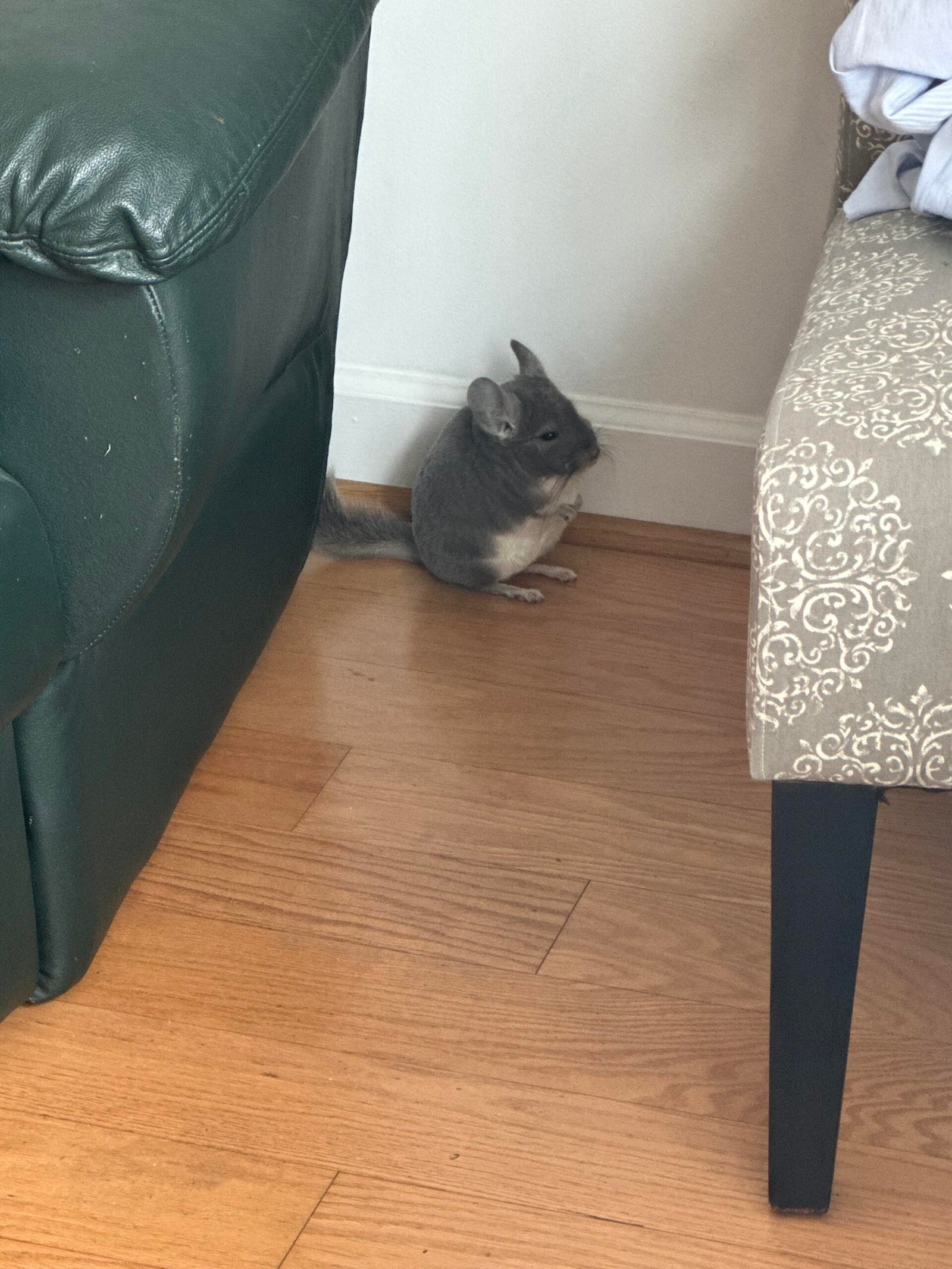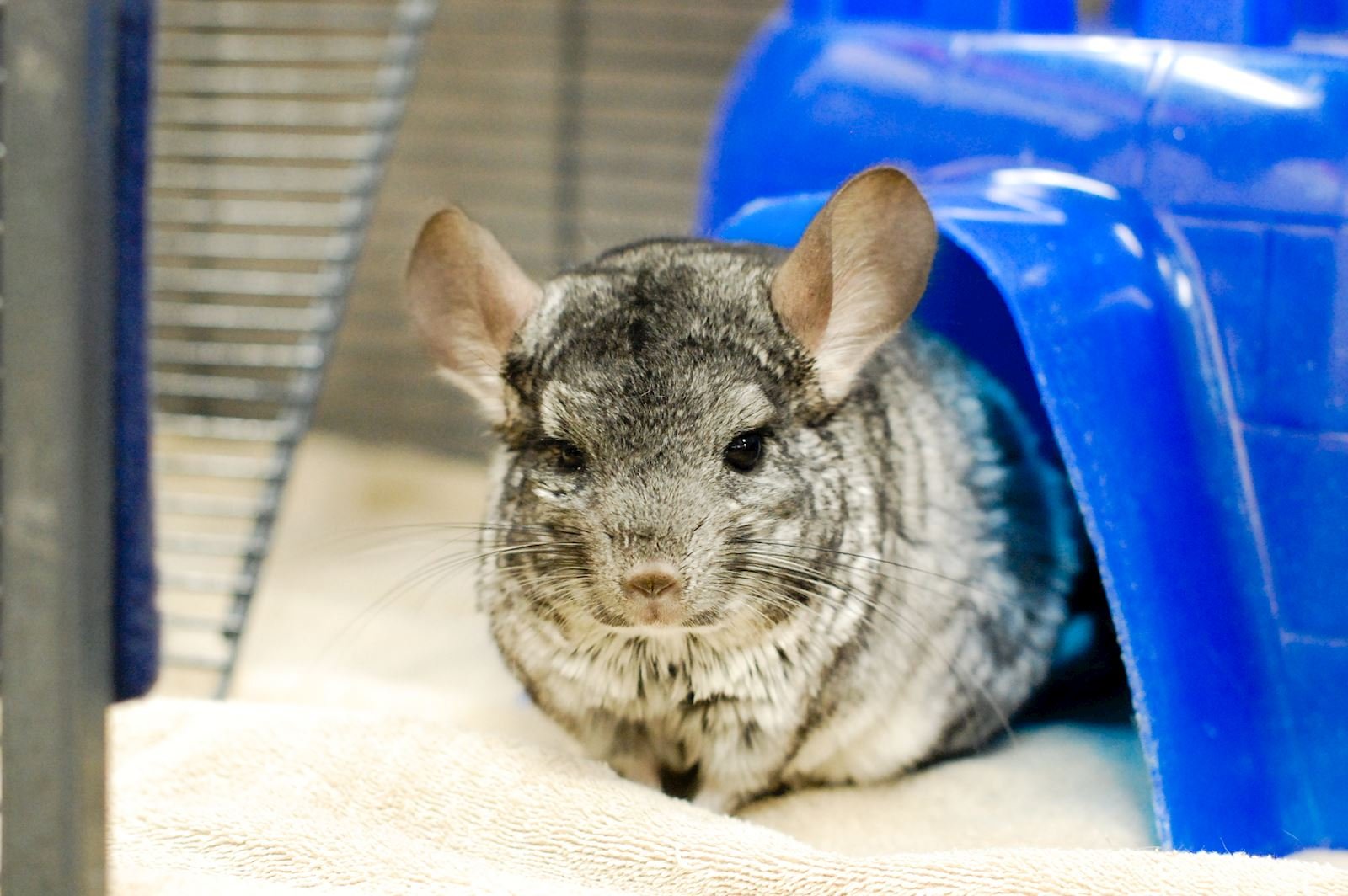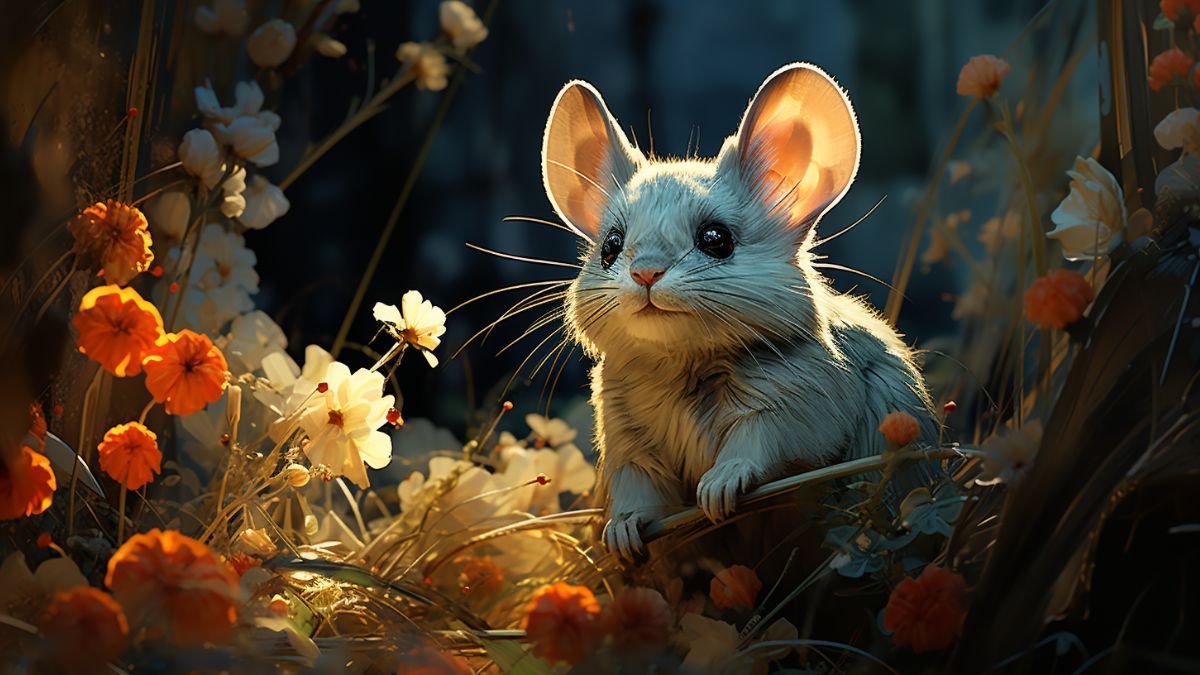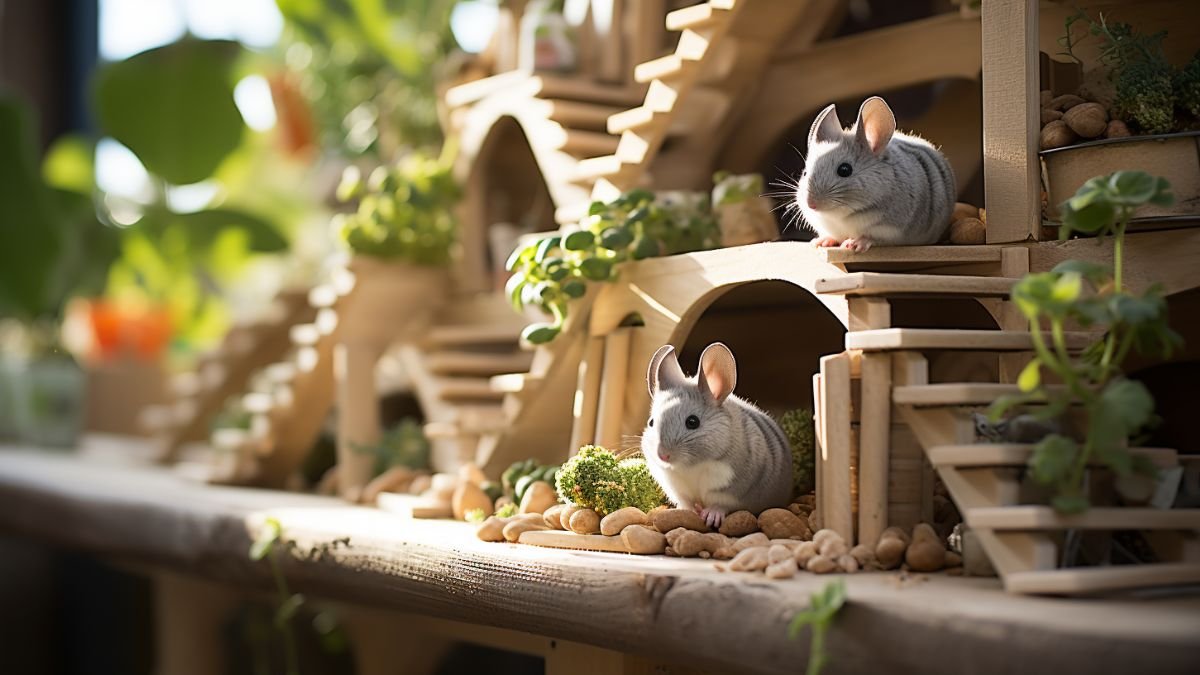
Training your chinchilla can be a fun and rewarding experience, but it’s easy to get frustrated if things don’t go as planned. What if you could turn every training session into a positive moment that both you and your furry friend look forward to?
When you make training enjoyable and stress-free, your chinchilla learns faster and builds trust with you. You’ll discover simple, effective ways to keep training positive, helping your chinchilla stay happy and eager to learn. Ready to transform your training routine?
Let’s dive in!
Benefits Of Positive Training
Positive training helps create a strong bond between you and your chinchilla. It makes learning fun and safe. This method uses rewards and gentle guidance. Your chinchilla feels happy and ready to learn. Training becomes easier and more enjoyable for both of you.
Building Trust With Your Chinchilla
Trust is the base of any good relationship. Positive training uses treats and praise to show kindness. Your chinchilla learns that you are a friend. It feels safe around you. This trust makes it easier to train and handle your pet.
Reducing Stress And Anxiety
Chinchillas can get scared during training. Positive methods keep training calm and gentle. Your pet stays relaxed and less nervous. No shouting or punishment means no fear. A calm chinchilla learns faster and stays healthier.
Encouraging Desired Behaviors
Positive training rewards good actions. Your chinchilla repeats behaviors that bring treats or praise. This helps teach tricks, manners, or routines. It also stops bad habits by ignoring them. Your pet learns what you want without fear.
Creating A Comfortable Environment
Creating a comfortable environment is key to positive chinchilla training. Chinchillas feel safe and relaxed in calm spaces. This comfort helps them learn better and enjoy training sessions. Setting up the right space, reducing distractions, and controlling light and temperature all play a role.
Choosing The Right Training Space
Pick a quiet spot in your home for training. The space should be small but roomy enough for your chinchilla to move. Avoid noisy areas like near TVs or busy rooms. A calm place helps your chinchilla focus on training.
Minimizing Distractions
Turn off sounds like music or loud conversations during training. Keep other pets away to prevent interruptions. Clear the area of toys or objects that might attract your chinchilla’s attention. Less distraction means better focus and faster learning.
Ensuring Proper Lighting And Temperature
Use soft, natural light or gentle indoor lighting. Avoid bright or flickering lights that can stress your chinchilla. Keep the room cool, ideally between 60-70°F (15-21°C). Chinchillas do not like heat and can get sick if too warm.
Using Rewards Effectively
Using rewards effectively is key to positive chinchilla training. Rewards help your pet understand what behavior you want. They create a happy learning experience. Choose the right rewards and give them at the right time.
Selecting Healthy Treats
Pick treats that are safe and healthy for chinchillas. Small pieces of dried rose hips or plain oats work well. Avoid sugary or fatty snacks. Keep treats small to prevent overeating. Healthy treats keep your chinchilla happy and healthy during training.
Timing Rewards Correctly
Give rewards immediately after the desired behavior. This helps your chinchilla connect the action with the treat. Delays can confuse your pet. Quick rewards make training clearer and faster. Always watch your pet closely to reward at the right moment.
Incorporating Praise And Affection
Use gentle words and soft strokes along with treats. Chinchillas respond well to calm voices and petting. Praise builds trust and encourages good behavior. Combine treats with affection for a stronger bond. This approach makes training a positive time for your chinchilla.

Credit: smallpetselect.com
Training Techniques For Chinchillas
Training chinchillas takes patience and gentle methods. These small animals respond best to positive and clear signals. Using the right techniques helps build trust and makes learning fun for your pet. Training also keeps your chinchilla mentally active and happy. Below are some effective ways to train your chinchilla with kindness and care.
Clicker Training Basics
Clicker training uses a small device that makes a clicking sound. This sound tells your chinchilla it did something right. First, press the clicker and give a treat. Repeat this until your pet links the click sound with a reward. Then, click and treat only when your chinchilla does the desired behavior. This method is clear and fast for teaching new tricks.
Shaping Behaviors Gradually
Start with small steps toward the final behavior. Break down the trick into easy parts. Reward your chinchilla for each little progress it makes. Gradual steps prevent confusion and keep your pet motivated. Patience is key. Move forward only after your chinchilla masters each step well.
Avoiding Punishment
Never punish your chinchilla for mistakes. Punishment creates fear and breaks trust. Instead, ignore unwanted behaviors and reward good ones. Use gentle words and soft tones. A calm approach helps your chinchilla feel safe and willing to learn. Positive training creates a happy bond between you and your pet.
Common Challenges And Solutions
Training chinchillas can be rewarding but not without challenges. Many owners face common issues that slow progress. Understanding these challenges helps create better training sessions. Patience and the right approach make training positive and fun for your chinchilla.
Dealing With Shy Or Nervous Chinchillas
Some chinchillas feel scared or shy during training. They may hide or freeze instead of engaging. Speak softly and move slowly to avoid startling them. Let your chinchilla explore the training area at its own pace. Use treats to create positive feelings. Small steps build trust and reduce nervousness.
Handling Setbacks And Slow Progress
Training does not always go as planned. Chinchillas may forget commands or lose interest. Avoid punishment or frustration. Instead, take breaks and try again later. Repeat simple steps often. Celebrate small wins to keep motivation high. Progress might be slow but steady wins the race.
Maintaining Consistency
Regular training sessions help chinchillas learn better. Set a routine with short, daily sessions. Use the same words and gestures for commands every time. Consistency prevents confusion and builds good habits. Everyone in the household should follow the same training rules. This creates a clear and calm learning environment.
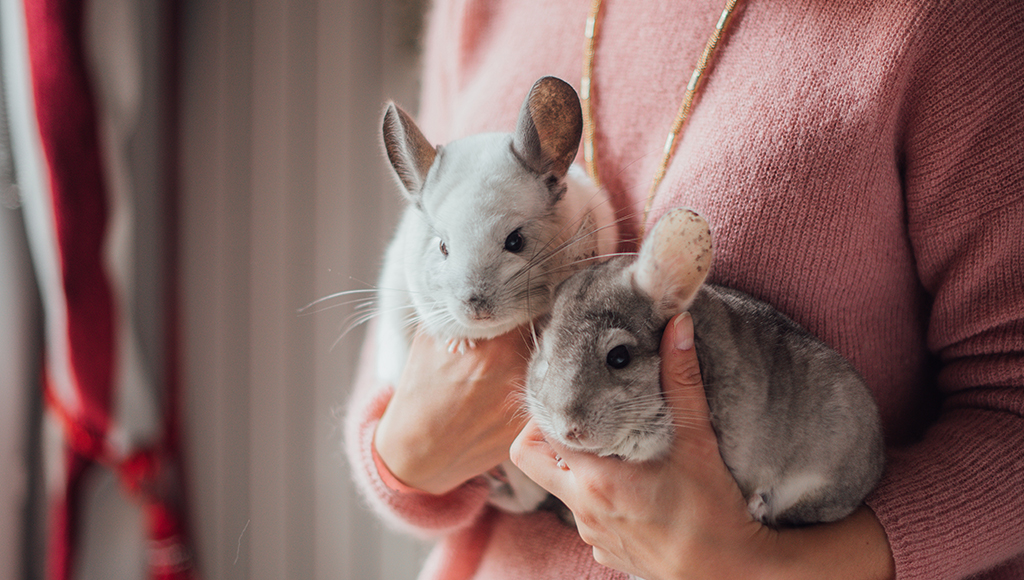
Credit: www.petassure.com
Daily Care To Support Training
Daily care plays a big role in training chinchillas. Good care helps them feel safe and ready to learn. It builds trust and keeps them healthy. Training works best when chinchillas are happy and comfortable.
Providing Proper Nutrition
Feed chinchillas a balanced diet every day. High-quality hay is their main food. It helps their digestion and teeth health. Fresh water should always be available. Treats like small pieces of dried fruit can help training. Use treats only as rewards, not regular food.
Ensuring Regular Exercise
Chinchillas need daily exercise outside their cage. This keeps their muscles strong and minds active. Safe play areas with toys encourage movement. Exercise reduces stress and boredom. Tired chinchillas learn better because they feel calm.
Maintaining Cage Cleanliness
Clean cages keep chinchillas healthy and happy. Remove waste daily and change bedding regularly. A fresh cage smells good and feels safe. Clean cages help chinchillas stay comfortable. Comfortable chinchillas are easier to train and handle.

Credit: cthumane.org
Frequently Asked Questions
How Can I Make Chinchilla Training Enjoyable?
Use gentle rewards like treats and praise. Keep sessions short and consistent. Avoid punishment to build trust and positivity.
What Treats Work Best For Chinchilla Training?
Offer safe treats like dried rose hips or small raisins. Avoid sugary or fatty foods to keep them healthy.
How Often Should I Train My Chinchilla?
Train daily but keep sessions under 10 minutes. Regular, short sessions help chinchillas learn without stress.
How Do I Read Chinchilla Body Language During Training?
Watch for relaxed posture, twitching nose, and calm eyes. Signs of stress include biting, freezing, or rapid breathing.
Conclusion
Training chinchillas can be fun and rewarding. Keep sessions short and positive. Use treats and gentle words to encourage good behavior. Patience helps build trust and confidence. Avoid punishment or loud noises to prevent fear. A happy chinchilla learns better and stays calm.
Practice regularly but don’t rush progress. Enjoy the time spent bonding with your pet. Positive training creates a strong, loving connection. Your chinchilla will respond well and feel safe.

